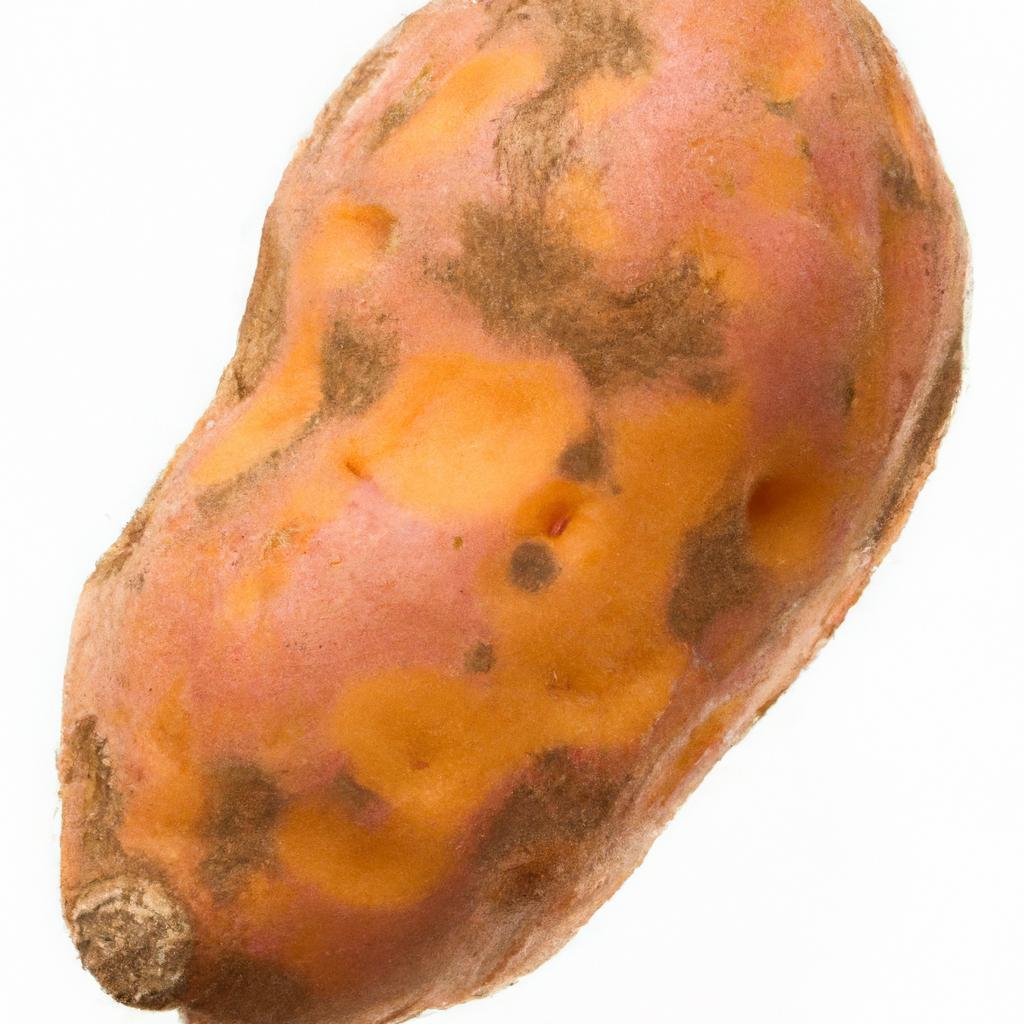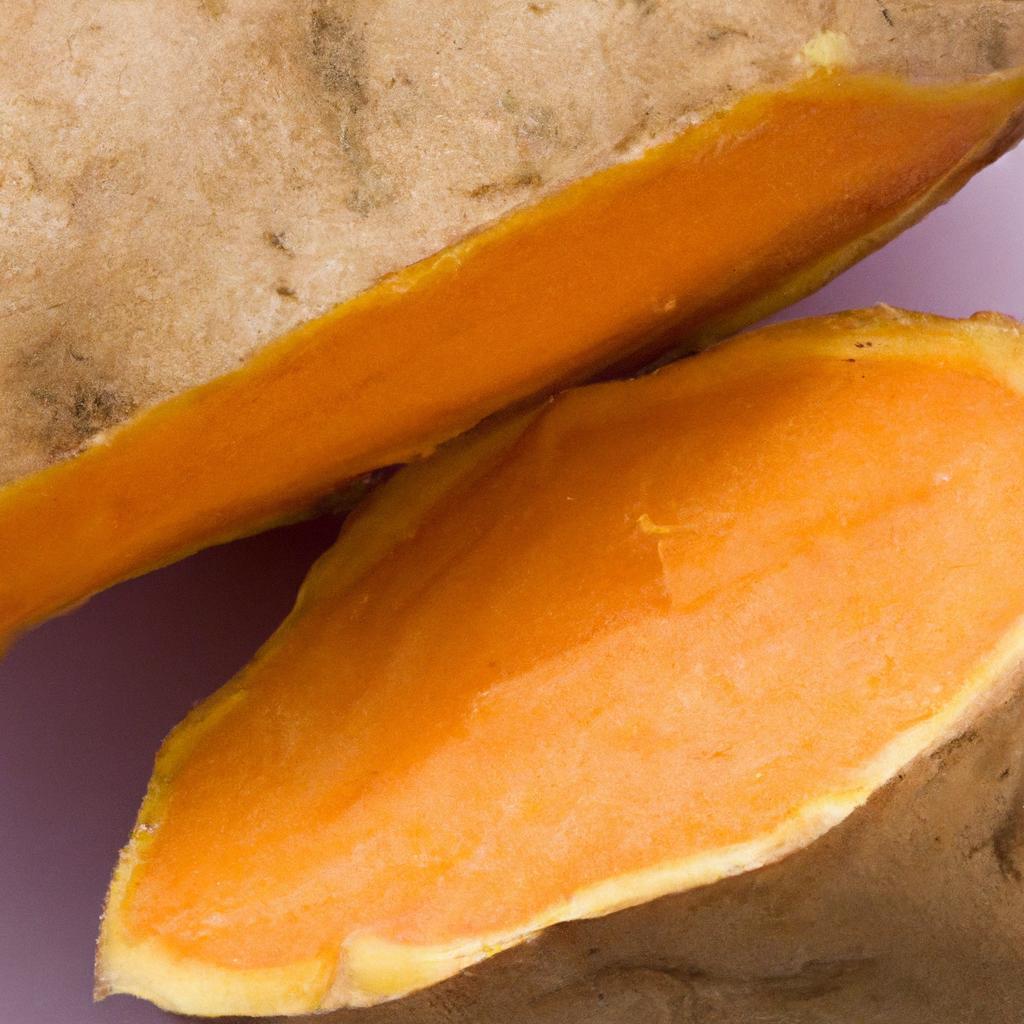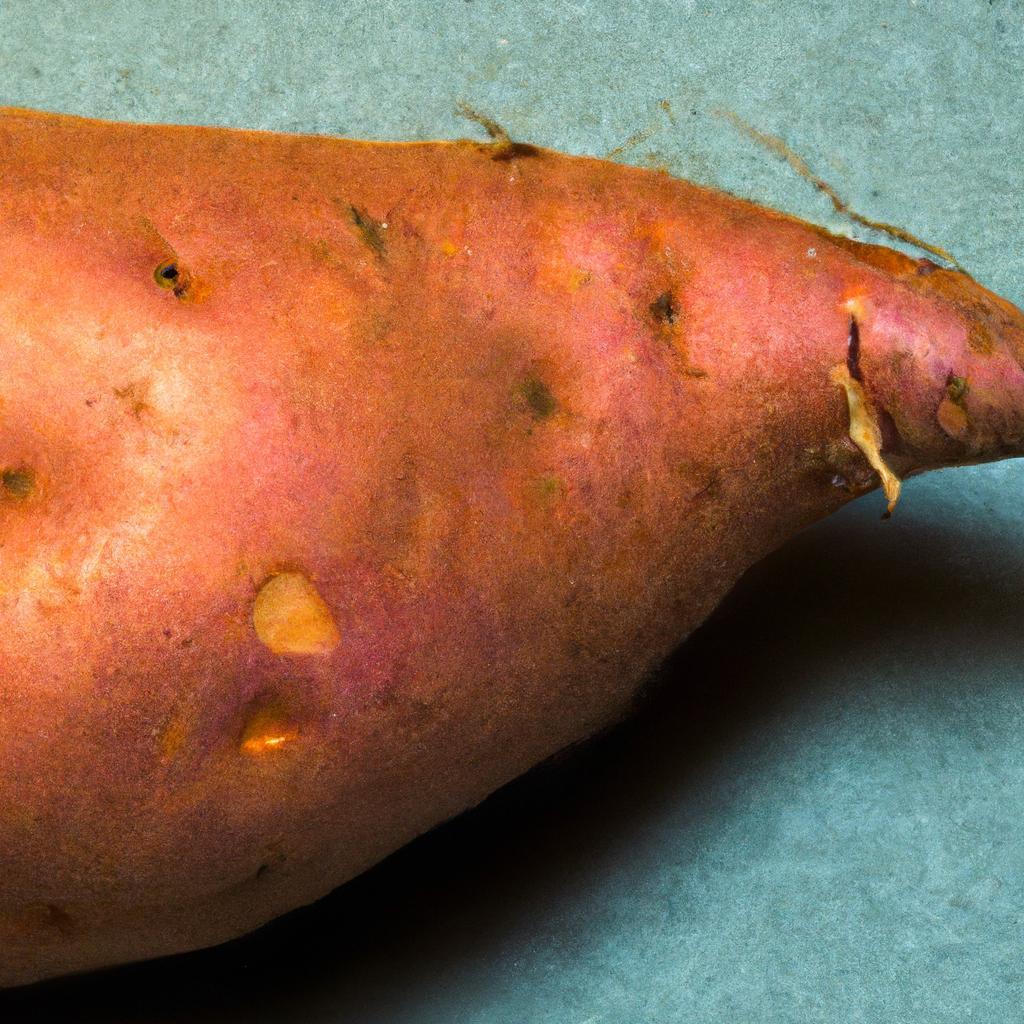Once upon a time, in a cozy home, a playful golden retriever named Max discovered a sweet potato on the kitchen counter. His owner, curious about its benefits, decided to share a small piece with him. To her delight, Max devoured it with joy! Sweet potatoes are not only delicious but also packed with vitamins, fiber, and antioxidants that promote a healthy coat and digestion. So, if you want to treat your furry friend to something nutritious, consider adding sweet potatoes to their diet. Your dog will thank you with wagging tails and happy barks!
Contents
- Understanding the Nutritional Benefits of Sweet Potatoes for Dogs
- Evaluating Potential Health Risks and Allergies Associated with Sweet Potatoes
- Incorporating Sweet Potatoes into Your Dogs Diet: Best Practices
- Expert Recommendations for Preparing and Serving Sweet Potatoes to Dogs
- Q&A
Understanding the Nutritional Benefits of Sweet Potatoes for Dogs
Sweet potatoes are not just a delicious treat for humans; they also offer a plethora of nutritional benefits for our canine companions. Rich in essential vitamins and minerals, these vibrant tubers can enhance your dog’s overall health. They are an excellent source of **vitamin A**, which plays a crucial role in maintaining healthy vision, skin, and immune function. Additionally, the presence of **vitamin C** and **vitamin B6** supports your dog’s metabolic processes and helps in the formation of red blood cells.
One of the standout features of sweet potatoes is their high fiber content. This dietary fiber aids in digestion, promoting a healthy gut and preventing constipation. A well-functioning digestive system is vital for your dog’s overall well-being, and incorporating sweet potatoes into their diet can help achieve that balance. Moreover, fiber can assist in weight management by providing a feeling of fullness, which can be particularly beneficial for dogs prone to obesity.
Sweet potatoes are also packed with antioxidants, which combat free radicals in the body. These antioxidants, including **beta-carotene**, contribute to reducing inflammation and may lower the risk of chronic diseases in dogs. By including sweet potatoes in your dog’s diet, you are not only providing them with a tasty treat but also fortifying their body against potential health issues. This makes sweet potatoes a smart addition to any dog’s meal plan.
Lastly, the natural sweetness of sweet potatoes makes them an appealing option for picky eaters. They can be served in various forms—mashed, baked, or dehydrated—allowing for versatility in your dog’s diet. When prepared properly, sweet potatoes can be a delightful and nutritious snack that your dog will love. By choosing sweet potatoes, you are opting for a wholesome ingredient that supports your dog’s health while satisfying their taste buds.
Evaluating Potential Health Risks and Allergies Associated with Sweet Potatoes
When considering sweet potatoes for canine consumption, it’s essential to evaluate potential health risks and allergies that may arise. While sweet potatoes are generally safe and nutritious for dogs, some pets may have specific sensitivities or allergies. Understanding these factors can help ensure a safe and enjoyable experience for your furry friend.
One of the primary concerns is the possibility of food allergies. Dogs can develop allergies to various ingredients, including sweet potatoes. Symptoms may include:
- Itching or skin irritations
- Gastrointestinal upset, such as vomiting or diarrhea
- Ear infections
If you notice any of these signs after introducing sweet potatoes into your dog’s diet, it’s crucial to consult your veterinarian to determine the cause and adjust their diet accordingly.
Another aspect to consider is the preparation method. Sweet potatoes should always be cooked before serving to dogs, as raw sweet potatoes can be difficult for them to digest and may lead to gastrointestinal discomfort. Additionally, avoid adding any seasonings, especially those containing garlic or onion, which are toxic to dogs. Simple boiling or baking without additives is the best approach to ensure safety.
Lastly, portion control is vital when introducing sweet potatoes into your dog’s diet. While they are rich in vitamins and fiber, excessive consumption can lead to digestive issues or weight gain. It’s advisable to start with small amounts and monitor your dog’s reaction. Gradually increasing the portion size while keeping an eye on their overall health can help you find the right balance for your pet.
Incorporating Sweet Potatoes into Your Dogs Diet: Best Practices
When considering adding sweet potatoes to your dog’s diet, it’s essential to introduce them gradually. Start with small portions to allow your dog’s digestive system to adjust. Monitor for any adverse reactions, such as gastrointestinal upset or allergies. If your dog shows signs of discomfort, it may be best to consult your veterinarian before continuing. Remember, every dog is unique, and what works for one may not work for another.
Preparation is key to ensuring that sweet potatoes are safe and beneficial for your furry friend. Always cook sweet potatoes before serving, as raw sweet potatoes can be difficult for dogs to digest. You can bake, steam, or boil them, but avoid adding any seasonings, butter, or oils. Simple, plain sweet potatoes are the healthiest option. Once cooked, you can mash them or cut them into bite-sized pieces, making it easier for your dog to enjoy.
Incorporating sweet potatoes into your dog’s meals can be done in various ways. You can mix them into their regular kibble or serve them as a standalone treat. Additionally, sweet potatoes can be used in homemade dog treats, providing a nutritious alternative to store-bought options. Consider these ideas for incorporating sweet potatoes:
- Mix with lean proteins like chicken or turkey for a balanced meal.
- Use as a healthy topping for dry food.
- Freeze mashed sweet potatoes in ice cube trays for a refreshing snack.
- Combine with other dog-friendly vegetables for a nutritious side dish.
Lastly, it’s important to keep portion sizes in mind. While sweet potatoes are packed with nutrients, they are also high in carbohydrates. A good rule of thumb is to limit sweet potatoes to no more than 10% of your dog’s daily caloric intake. This ensures that your dog receives the benefits of sweet potatoes without overloading on calories. Always consult with your veterinarian to determine the appropriate serving size based on your dog’s specific dietary needs and health conditions.
Expert Recommendations for Preparing and Serving Sweet Potatoes to Dogs
When it comes to incorporating sweet potatoes into your dog’s diet, preparation is key. **Always cook sweet potatoes thoroughly** before serving them to your furry friend. Raw sweet potatoes can be tough for dogs to digest and may lead to gastrointestinal upset. Boiling, steaming, or baking are excellent methods to soften the tuber while retaining its nutritional benefits. Avoid adding any seasonings, butter, or oils, as these can be harmful to dogs.
Portion control is crucial when introducing sweet potatoes to your dog’s meals. **Start with small amounts** to gauge your dog’s reaction and tolerance. A few teaspoons mixed into their regular food can be a great way to begin. As your dog adjusts, you can gradually increase the portion size. However, it’s essential to remember that sweet potatoes should only make up a small percentage of your dog’s overall diet, typically no more than **10%** of their daily caloric intake.
Serving sweet potatoes in various forms can keep mealtime exciting for your dog. **Mashed sweet potatoes** can be a delightful treat, while small cubes can serve as a nutritious training reward. You can also consider freezing sweet potato slices for a refreshing snack on hot days. Just ensure that any treats you prepare are free from harmful additives and are suitable for your dog’s specific dietary needs.
Lastly, always consult with your veterinarian before making significant changes to your dog’s diet. **Every dog is unique**, and what works for one may not be suitable for another. Your vet can provide personalized advice based on your dog’s health, age, and dietary requirements, ensuring that sweet potatoes enhance their diet safely and effectively. By following these expert recommendations, you can confidently introduce this nutritious food into your dog’s meals.
Q&A
-
Is sweet potato safe for dogs to eat?
Yes, sweet potato is safe for dogs when prepared properly. It is a nutritious food that can be a healthy addition to your dog’s diet. Always ensure it is cooked and served in moderation to avoid any digestive issues.
-
What are the health benefits of sweet potato for dogs?
Sweet potatoes are rich in vitamins A, C, and B6, as well as dietary fiber. These nutrients can help support your dog’s immune system, improve digestion, and promote healthy skin and coat.
-
How should I prepare sweet potato for my dog?
To prepare sweet potato for your dog, wash it thoroughly, peel if desired, and cook it by boiling, baking, or steaming. Avoid adding any seasonings, butter, or oils, as these can be harmful to dogs.
-
Can sweet potato cause any health issues in dogs?
While sweet potato is generally safe, overfeeding can lead to gastrointestinal upset. Always introduce new foods gradually and consult your veterinarian if your dog has any specific health concerns or dietary restrictions.
sweet potatoes can be a nutritious and delicious addition to your dog’s diet when prepared properly. Their health benefits, from boosting immunity to aiding digestion, make them a worthy treat. Always consult your vet to ensure the best for your furry friend!

大家好,我是彼得潘,專業的手法身體治療師。我喜歡探索和研究各種主題,並透過與人工智慧的合作分享專業、實用、有趣的文章。我們定期進行人工審核,以確保內容的準確性。如果您發現文章中有任何不準確的地方,請隨時與我們聯繫,我們會及時糾正。您可以透過 [email protected] 與我們聯繫。



